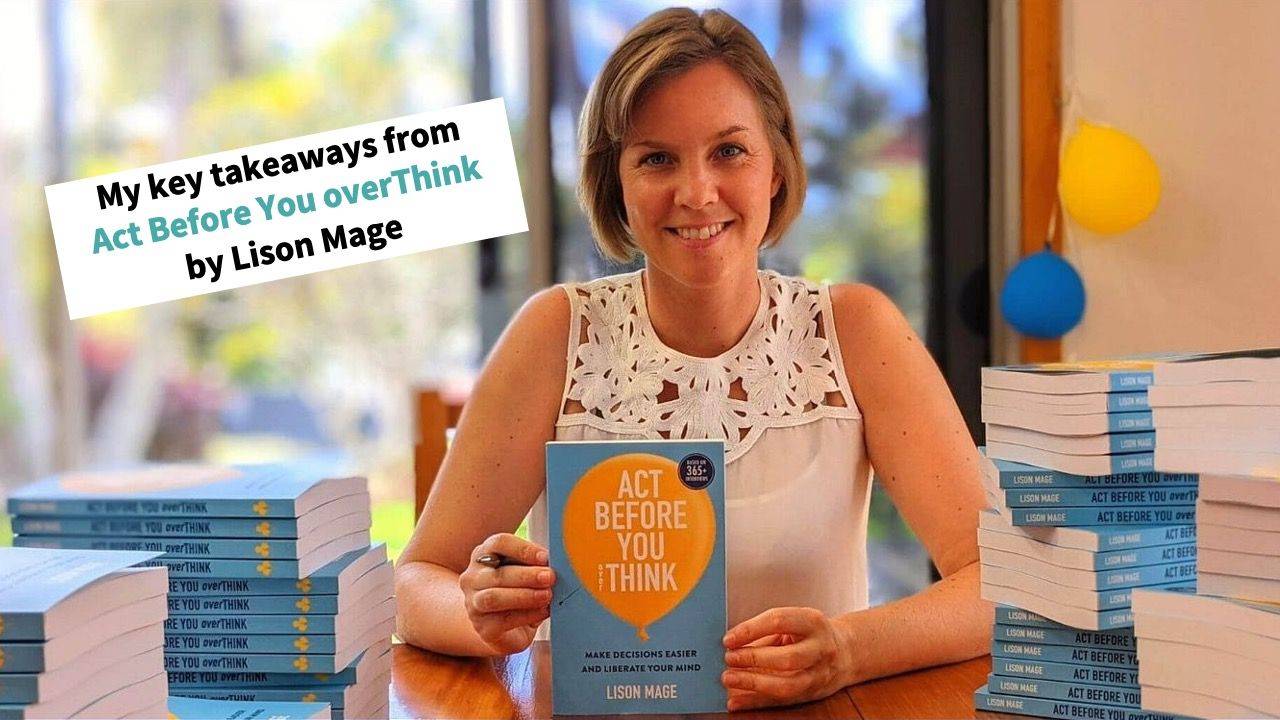How you can act before you overthink
Jul 04, 2023
My review series covers many books about sales, marketing and leadership with many of them standing out within their own category. The book “Act Before You overThink” from Lison Mage is remarkable as it doesn’t fit into any category and nearly create a niche on its own. Sales professionals and managers can use the learning from this book to teach their sales reps to build better relationships. It helps anyone improving their productivity challenges. And it also prevents from turning perfection into procrastination and thinking into overthinking.
I met Lison many years ago during her IT career attending sales management workshops in Sydney with a remarkable curiosity into human behaviour. Equipped with international experience in various cultures from her home in France to China and now Australia, she became an executive coach on performance and decision-making. As a keynote speaker on those topics, she published this book in 2022 reflecting on the feedback of other people about how their decision making processes.
The book is structured into three myths which Lison distilled after conducting more than 365 one-to-one interviews: Overthinking is enhancing my thinking, overthinking is inconsequential to me, and Overthinking is inevitable in decision-making. She found that the topics we deeply care about are segmented into the three categories control, competence and connection. When we overthink, those categories turn into the triad perfection, completion and validation.
The chapters turn the myths into solutions to move forward against their face value. We learn that overthinking has no benefit, it is a harmful illness and there are tools available to stop us in decision making activities. My personal takeaway from the book is shown in this short sentence: “Think before you act, but act before you overthink.”
This book about overthinking is overflown with more quotes to stop for a moment and to remember them as they stand out. Here are some of my favourites: “Conquering overthinking is not about thinking less but thinking better.” and “We have access to an overwhelming amount of information, but our ability to process it has not changed.”
I also resonate with “Completion is mistaken for competence and incorrectly used as an absolute criterion to evaluate self-worth.” and “Overthinking through an excess of analytical thinking leads to the exact opposite of our objective as it reduces the performance of our analytical thinking.”
Even when we are aware of our overthinking patterns, it would be good to apply the teaching from the book for our own practice. Therefore it is highly useful to grab the chapter summaries regularly which remind us at the key learnings on one page. The following lists of “how-to” suggestions help to avoid overthinking.
“Act Before You overThink” is special in many ways. For me it is one of only few books where reading the introduction makes sense as Lison announced she would challenge the reader. She even asked them to go through the book with a balanced mix of being open and sceptic. This way she encourages her audience to have an open mindset needed to prepare for the transition from overthinking towards an action taker. The visual branding alongside this book with yellow balloons like a lightbulb is also a special way to illustrate the message about overthinking – resulting in a potential bang instead of keeping the perfect shape for action.
This book is also about collaboration and teamwork beyond the contributions from the interview partners. Without the structured help of co-author Guy Langlois and the eye-catching illustrations of Pierre Langlois it would feel incomplete.
Future authors can be inspired by Lison’s book in many ways. Her approach of getting into a topic by performing thorough research and conducting multiple interviews before coming to conclusion and developing her own advice is remarkable. Too many books explain a theory and try to support that with quotes instead of developing a proper foundation. Upcoming authors might even consider her structure approach by naming the chapters by distinctive myths as a clever way to grab the reader where they are and show the outcome in the subtitle: “Make decisions easier and liberate your mind”.

Q&A with Lison Mage
1. What was the deciding moment to write this book?
That’s a funny story actually. I had been coaching for a few years and one evening I was with one of my mentors and he asked me about the common denominator among my clients. And I had never really thought of it.
For me, each of the people I worked with was unique in their own way. But he kept on pushing me all night long to get an answer out of me. And I kept on pushing back. Because it’s not like I had a niche market like businesswomen in their 30s. I worked with people from different backgrounds, 50 year old ex CTO and 25 years old woman based in China. But he was really persistent and I ended up giving in. I don’t remember exactly what I said, but it was something like: “they think too much” or “they are too much in their heads”.
And then I remember him cooling down, he was smiling and he told me: “Good, now write a book about this.”
And at first, I didn’t take the advice too seriously. I was thinking there was no way I could write a book. But it got me curious. That was the first step. Being curious is the first step to get outside of our comfort zone.
So, I got curious about this pattern of “thinking too much” – that I now call overthinking. And I wanted to know more about it. So not only did I research the psychological literature on this topic, and I thought i could directly ask people about it – so I decided to interview overthinkers.
And that’s probably where the engineering background kicks in. I wanted to have enough data to get some strong and valid conclusions – I ended up interviewing more than 365 overthinkers over a year.
After 200 interviews, I already had a strong body of evidence that overthinking was really toxic for our mental and physical health, but also on so many other aspects of our life like our cognitive abilities or our decision making. I knew that it was bad but also misunderstood. People consistently downplayed the effects of overthinking.
And that’s what this last point that built my conviction to write a book. And when we have conviction, when we know why we must do something, we can be audacious.
Knowing that people were not taking overthinking seriously and the damages it could do to them over time was the catalyst – I was not okay with it.
The reason why I decided to write the book was because I hope it could help people. And so I stepped into the unknown of writing and publishing a book. Faced my fears and doubts and did it. And really what was key was this sense of conviction, knowing why.
I think when people know why they do something and it matches with their values, it lights up a fire inside us. It gives us the strength to do things we would never have thought we could do.
2. How long did it take from concept to launch?
It took a bit more than one year to get this book from concept to launch. This includes the research time (with more than 365 1-1 interviews), the writing, and then all the publication process.
3. How did you perform the research to create the practical content?
I leveraged the interviews I did with more than 365 people about their relation with “overthinking” and the feedback I got from my coaching clients. Plus I extensively read on the topic (books, academic papers) and studied bits of psychology and behavioural sciences to see if and how my interview findings match with the current scientific literature.
4. What was the biggest challenge along the process (and how did you overcome it)?
The biggest issue was that I was focusing too much on making the “best” book possible. I was riveted on the outcome and that was paralysing.
I wanted so much to have a “amazing” book that could impact one’s life. It led me to consume a lot of content. I read books on similar topics, researched extensively for more than a year, watched countless videos on how to write and publish a book, and the list goes on. I kept accumulating information, but I hadn’t written a single line.
I was too focused on the outcome – writing a “good” book and felt paralysed – every time I faced my computer by the challenge ahead of me. So in order to help me, I adopted a process beautifully explained by Steven Pressfield in his book “The War of Art”.
It is pretty simple, I needed to get “in the trenches” every day: sit in front of my computer, and write, come hell or high water. How many lines I wrote and the writing quality were only details of the process that I could adjust, but the main point was to write no matter what. Therefore I progressed every day, getting closer to my goal, to my “good” outcome of getting a book written and published.
5. What was your own reflection along the journey?
My thinking changed a lot along the journey. It keeps on evolving, even now. I think the best takeaway is really the difference between focusing on the outcome and working on the process.
Writing a book is a process. And you can refine your process along the way, finding what works and what doesn’t for you. I know people have different systems, but for me it was really blocking the same time of the day in my calendar, sitting in front on my computer and writing, no matter what.
Doing this, you are building a muscle, creating a habit. I’m not sure writing necessarily became easier over time. It certainly did, but I’m not sure I noticed it at the time. What I observed is the progression. The number of pages written, one chapter, two chapters and so forth.
And this created momentum. It gave me energy to keep on sitting in front on my computer, doing the work, every day.
6. What is the outcome in having this book available?
I gained more confidence and it gave me more authority when I speak on the topic of overthinking. It has also been a little breakthrough. I added a new facet in my identity – I’m a published author! And this started a sort of fire where I can now see myself more easily writing new books.
7. What would you advise others about writing their book?
As mentioned earlier, I recommended reading “The War of Art”, which can really help reframe someone’s approach to writing. And then, I would say, do the work. Might sound silly, but that’s extremely easy to go down a new rabbit hole and find a way to excuse ourselves for not writing.
I think that if you want to write a book and are serious about it, you cannot wait for inspiration to come and then start writing. You have to write, no matter the quality. And then the inspiration will come.

Lison Mage: “Act Before You overThink”, The Mindful Experience 2022, ISBN 978-0645233001 (Paperback) or Kindle
More about the author and the book: www.lisonmage.com
